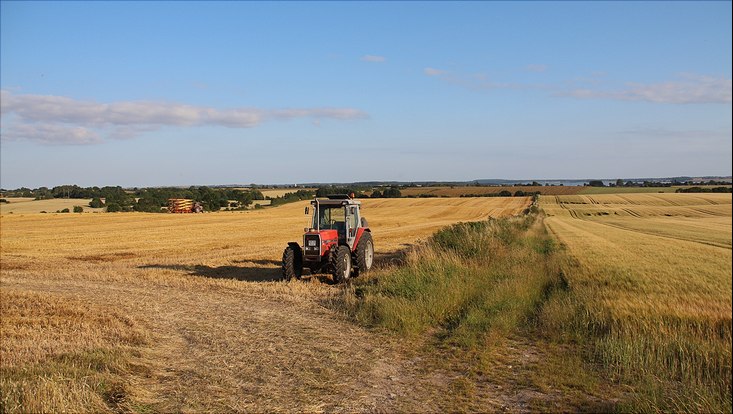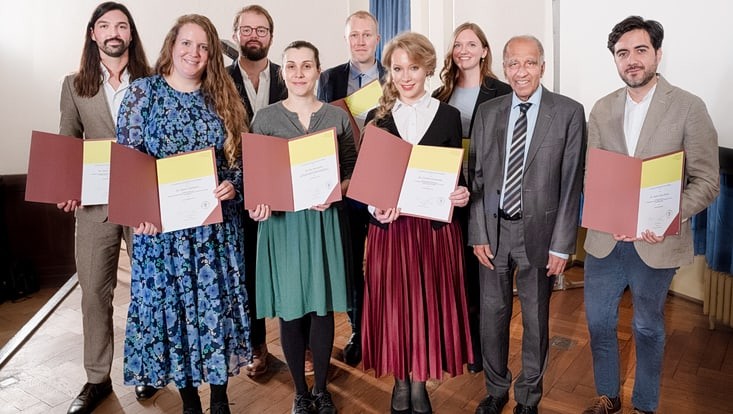and Society (CLICCS)
CLICCS QuarterlyRecycling in the (Crop) Field
4 June 2021, by Stephanie Janssen

Photo: UHH/CEN/T. Wasilewski
Crop fields release large amounts of climate-relevant CO2 into the atmosphere. In the process, they lose organic carbon, making them less fertile. Such losses can be reduced by putting crop residues and other agricultural organic matter back onto the fields. However, in the soil these materials are rapidly broken down into CO2.
Dr. Christian Knoblauch and his team recently tested a new recycling process that involves carbonizing agricultural plant waste and then working the biochar produced into the soil. The results are very encouraging: the carbon can enrich the soil on a long-term basis, since biochar does not break down readily. Furthermore, its surface binds nutrients such as nitrogen and phosphorus, preventing them from being leached into the groundwater. At the same time, biochar fixes harmful heavy metals, so that they cannot be taken up by plants. Currently, biochar is expensive to make, and there are only a few production sites. Nevertheless, it can be worthwhile, since it increases crop yield. “A circular economy like this solves the problem at the source,” says Knoblauch. “A practical solution with benefits for both soil and climate, the interest in it is growing exponentially.”
CLICCS Quarterly
This article was published in the CLICCS Quarterly, in which the Cluster of Excellence presents current news from its climate research. Find full issue -> here.
Associated Paper
Knoblauch C, Priyadarshani SHR, Haefele SM, Schröder N, Pfeiffer E-M. (2021): Impact of biochar on nutrient supply, crop yield and microbial respiration on sandy soils of northern Germany. Eur J Soil Sci. 2021;1–17.


